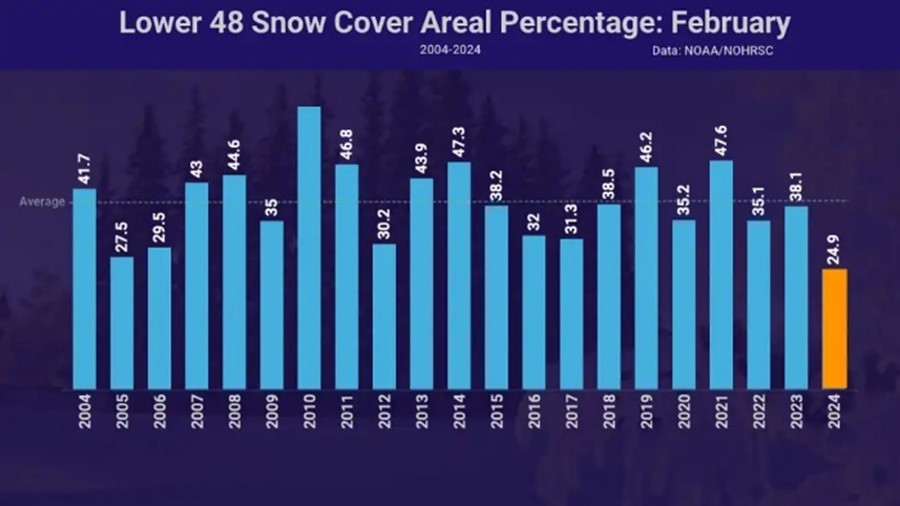Does a warm winter mean increased insect pressure?
Katelyn Miller, Field Crops and Forage Specialist
Southwest New York Dairy, Livestock and Field Crops Program
According to data from the National Oceanic and Atmospheric Administration (NOAA), December through February was the Lower 48's warmest winter recorded in 129 years. This winter topped the previous record from 2015-16 by 0.82 degrees Fahrenheit. New York was one of eight states that experienced the warmest winter on record, causing issues with maintaining snow cover and ice cover on Lake Erie. Additionally, the average snowfall in February was the smallest snow cover we have experienced in 20 years. Many knew, even without this data, that this winter was abnormal in temperature and snowfall; so how could that impact insect pressure this growing season?

In the Northeast, insects survive most commonly through migration and overwintering strategies. Insects such as potato leaf hopper rely on migration as they typically cannot survive winters in the Northeast. Other insects like alfalfa weevil take shelter in the field. Adults will remain dormant in alfalfa fields or sheltered grassy areas where snow will serve as insulation. White grub species like June beetles will overwinter in the soil where temperatures remain above air temperature. While these are just some examples of pests and their overwintering strategies, there are some factors that may impact the survival of insects:
- Large temperature swings can be detrimental to insects. An insect may become active when they would normally be dormant, and this can cause mortality if there is not enough food.
- Above-ground overwintering insects may be more likely to survive with fewer cold days. On the flip side, a lack of snow could expose insects to below freezing temperatures.
- A mild winter will likely not have a detrimental effect on insects that overwinter in the soil because of consistent soil temperatures.
It's important to remember that all these principles apply to beneficial insects as well, which could be positive. So back to our original question; does a warm winter mean increased pest pressure? Time will only tell. While it's uncertain how this weather will truly impact pest pressure, it's important to be prepared. Pest scouting as part of an integrated management plan will help you make economical pest control decisions.
Upcoming Events
Boots in the Barn: Cornell Dairy Research Updates
January 13, 2026
January 20, 2026
January 27, 2026
February 3, 2026
February 10, 2026
February 17, 2026
February 24, 2026
Join us for some or all!
Southern Tier Crop Congress
January 28, 2026 : Southern Tier Crop Congress
Belfast, NY
Join SWNYDLFC and CCE Allegany County for the upcoming Southern Tier Crop Congress. CCA and DEC credits are available!
Northeast Grazing and Livestock Conference
January 30 - January 31, 2026 : Northeast Grazing and Livestock Conference
Manchester, NH
100% VIRTUAL OPTIONS AVAILABLE! This is the largest conference of its kind in New England and New York, bringing together over 300 farmers, graziers, educators, and service providers from across the Northeast. Over two days, we'll take a deep dive into topics specific to raising pasture-based livestock in our region
Announcements
Cows, Crops & Critters Newsletter Sponsorship
TRYING TO REACH GROWERS AND AGRIBUSINESSES IN OUR SOUTHWEST REGION OF NEW YORK?Weekly Email Update: Shared with 625+ households who have signed up with our program.
Monthly Paper Mailer: To reach our stakeholders and farmers who lack internet access, we send out a monthly mailer where your company's logo and contact information would be featured with a mailing list of 330+ households.
If you sponsor our weekly and monthly publications you reach approximately 955 households.





